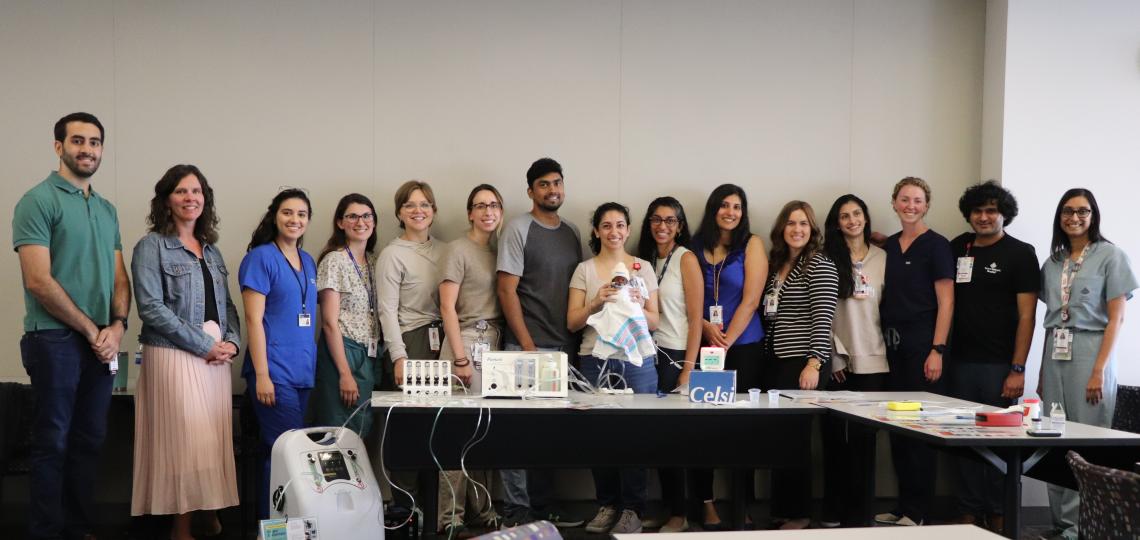
Several global health curricular elements are integrated into the 3 years of training in Houston, including:
- Global Health Quarterly Academic Half-Days (G-QUAD): Global health residents have protected time to attend quarterly sessions during which longitudinal global health curriculum is delivered. These sessions include didactic lectures, hands-on skills workshops, advocacy training, educational field trips, and other activities.
- Pre-Service Training: Required one-month intensive “boot camp” training prior to prepare for time abroad. This highly interactive course covers a variety of topics including tropical diseases, HIV care and treatment, and other topics to prepare residents to work in resource-limited settings. It includes didactic lectures from local and international faculty, hands-on skills lab, simulation learning, laboratory sessions, group projects, and ethical case discussions. In conjunction with 12-months of clinical practice and laboratory activities during their time abroad, the course qualifies residents to take the American Society for Tropical Medicine and Hygiene certification exam in Tropical Medicine and Traveler Health.
- Global Health Case Conference: Monthly case discussion of patients seen in global health settings, with discussion of how this patient would be managed in a high-resource vs low-resource setting.
- Global Health Journal Club: A quarterly forum for discussing recent advancements in global health, open to all Texas Children’s Hospital and Baylor College of Medicine faculty and trainees.
- Electives: Global health residents pursue a variety of electives related to global health and customized to their interests, including away rotation at Indian Health Services sites, immigrant health electives, adoption and travel medicine, disaster preparedness, and advocacy electives.
Resident societies:
The Baylor Pediatric Residency Program assigns residents to one of our eight resident societies. Residents remain in the society throughout their training and participate in The Society House Cup. Society meetings are held monthly where residents discuss various topics surrounding professional development. Example topics include:
- Leadership development
- Promoting community involvement and advocacy efforts
- Career development
- Social activities
The Wilfert Society
In 2015, the Wilfert Society was named after Dr. Catherine Wilfert who has focused her career on eradicating pediatric AIDS, and served as the scientific director for the Elizabeth Glaser Pediatric AIDS Foundation. The Wilfert Society is comprised of residents from The Dr. Kelly DeScioli Global Child Health Residency Program and the Primary Care Leaders Evaluating and Addressing Disparities (L.E.A.D.) Residency Program.








